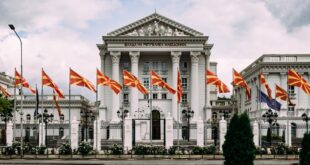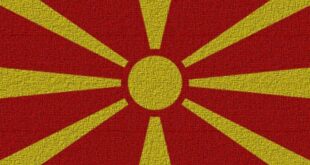The “name” row between neighboring Macedonia and Greece could be settled using the recent Croatia-Slovenia model, through international arbitration, Macedonia’s foreign minister Antonio Milososki said Wednesday.
Milososki made this remark after meeting Spanish members of the European Parliament, Francisco Jose Millan Mon and Jose Ignacio Salafranca, the Macedonian MIA state news agency reported.
“We would like to find a constructive way and mechanism for dialogue with Greece. We would not mind direct contacts, focused on concrete things that bring the two countries closer,” Milososki stated.
He pointed to the example of Slovenia and Croatia who, after months of fruitless negotiations, signed an agreement whereby an international arbitration team will settle an 18-year long disagreement over the sea and land border between the two countries. The two have agreed that the ruling would be binding to both countries.
By sending the disagreement to international arbitration, Slovenia also agreed to lift the blockade it had set blocking Croatia’s EU accession talks.
Greece has also threatened to block its smaller neighbor from progressing towards EU membership.
Greece last year vetoed Macedonia’s entry into NATO, due to the 18 years-long row over the name. Athens insists that Skopje’s official name, Republic of Macedonia, implies territorial claims toward Greece’s own northern province which is also called Macedonia.
The UN-lead name talks between the two countries have so far been fruitless. UN mediator Natthew Nimetz has set a date of a further round of talks for 16 November.
NATO said that Macedonia could enter the Alliance as soon as it settles the name spat. The EU stresses that this is a bilateral dispute that has to be settled between the two countries, the sooner, the better.
Last year Macedonia brought the case to the Hague based International Court of Justice. But legal experts say that even if Skopje eventually wins the case, victory will offer only moral satisfaction since the Court has no legal mechanisms to enforce its ruling.
 Eurasia Press & News
Eurasia Press & News



